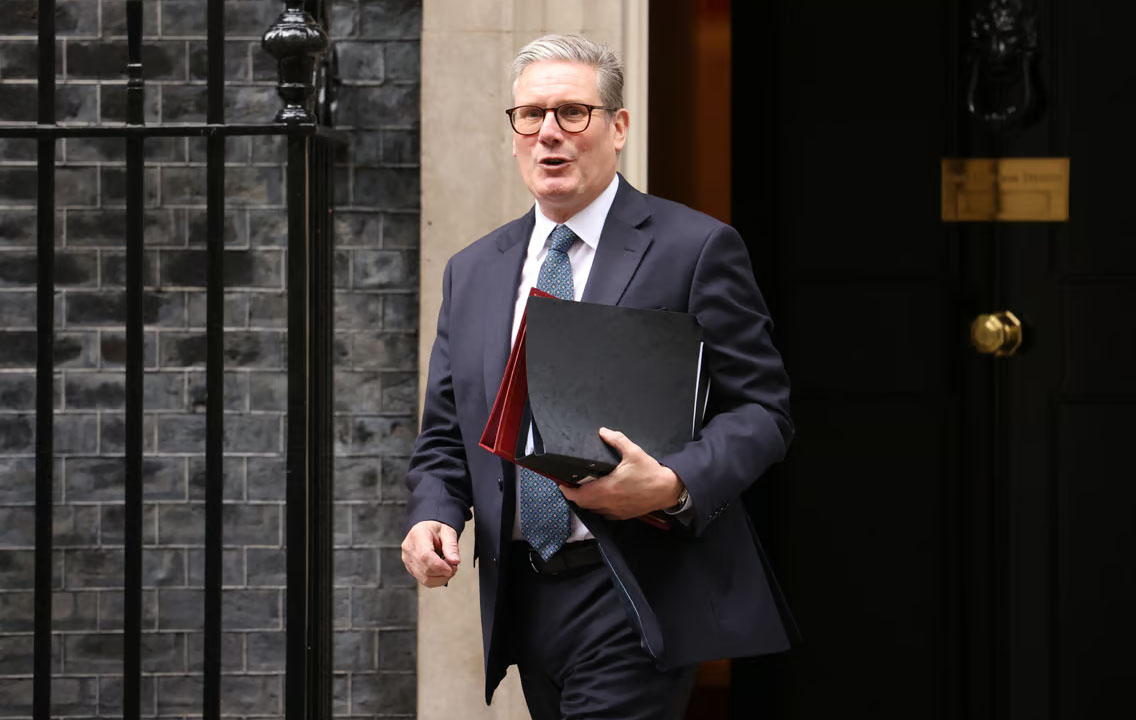
Photo Credit: Getty Images
The United Kingdom has announced a sweeping £40 billion ($52 billion) tax increase targeting high earners, wealthy foreigners, and large businesses. This bold move, aimed at stabilizing the country’s finances and addressing economic inequality, is part of the Labour Party’s first budget since it swept to power in a historic July election.
Rachel Reeves, the UK’s first female finance minister, unveiled the measures outside her office at Downing Street on October 30, wielding the iconic red budget box as she addressed the press. reeves described the tax hike as a critical step to “restore stability to our public finances and rebuild our public services,” taking aim at the previous Conservative government, which she claimed had left the UK with weakened public services, stunted economic growth, and deteriorating living standards.
The Labour government’s budget prioritizes new revenue streams from the wealthier segments of society while leaving taxes on working people largely unchanged. As part of the policy, high earners will now pay increased capital gains taxes on profits from asset sales, including investment properties and stocks. Additionally, inherited pensions will no longer enjoy tax-free status, adding a further layer of taxation on the UK’s wealthiest residents.
“This change is a blow for investors… it also makes investment less attractive for newcomers,” said Sarah Coles, head of personal finance at financial services firm Hargreaves Lansdown, warning that higher taxes could deter new investors and weaken the stock market.
In a particularly controversial move, Reeves announced the abolition of the “non-dom” tax regime, a policy that had previously allowed some foreign residents to avoid paying UK taxes on their overseas income by claiming permanent residence abroad. In its place, a new tax system targeting these residents will raise an estimated £12.7 billion ($16.5 billion) over the next five years.
Wealthier individuals will also face increased duties on private jet travel, with a 50% hike adding roughly £450 ($585) per passenger for a flight from the UK to California. Additionally, private schools will lose their current 20% tax break on tuition fees, while business rate relief on commercial properties used by these schools will also be scrapped. These measures will affect nearly 620,000 students currently enrolled in private education across the country.
The Labour government is also introducing a significant change to employer National Insurance contributions, a move expected to generate £25 billion ($33 billion) annually. This will require larger businesses to pay more toward the national budget, although small businesses will remain exempt. Roger Barker, director of policy at the Institute of Directors, cautioned that this could diminish business confidence and hinder economic growth, potentially reducing job opportunities for workers.
Reeves balanced the budget’s tax increases with a commitment to boosting long-term economic growth through higher public investment. Over the next five years, the government plans to direct more than £100 billion ($130 billion) into infrastructure, research, and development. A newly created National Wealth Fund, with £70 billion ($91 billion) earmarked for sectors such as battery production and green hydrogen, is designed to strengthen the UK’s position in emerging industries.
The Office for Budget Responsibility (OBR) projects that while these measures may stimulate short-term growth, the long-term effects on economic expansion will be modest. However, the UK economy has shown resilience this year, and the International Monetary Fund recently raised its forecast for Britain’s GDP growth to 1.1% — a promising sign as the country navigates its recovery.
This new direction under the Labour government reflects an effort to address immediate fiscal challenges while investing in a sustainable future for Britain’s economy, marking a transformative shift in UK financial policy.
















